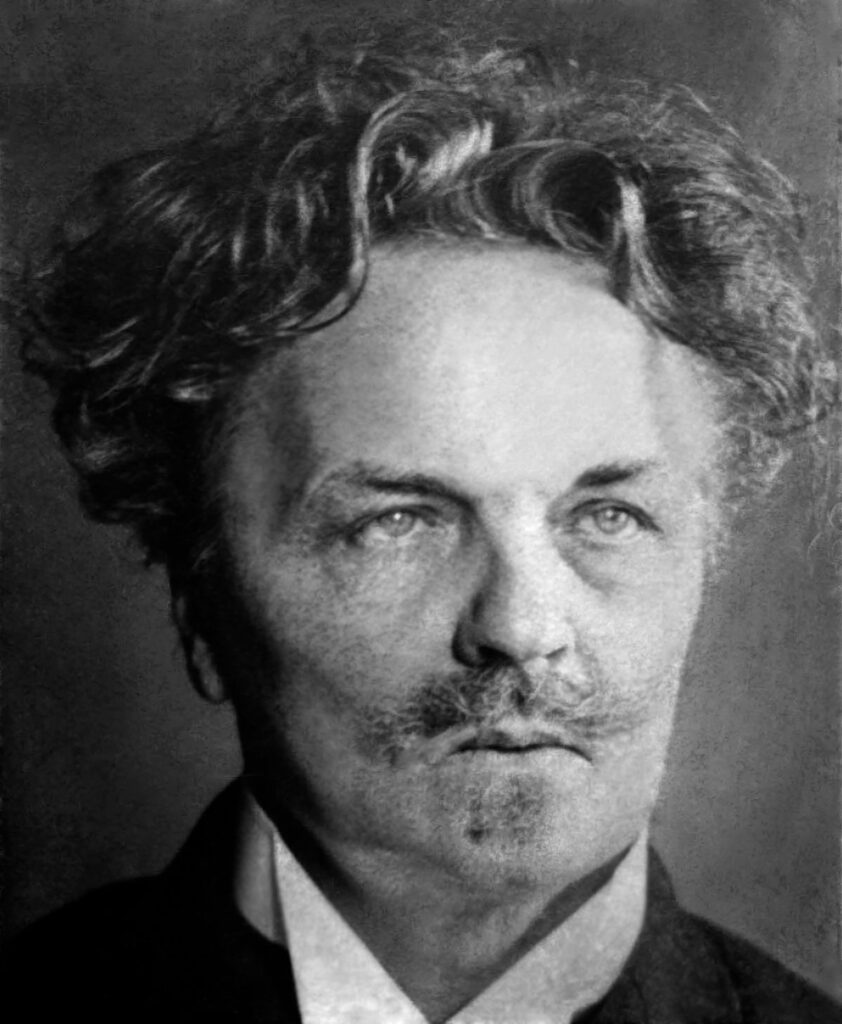Decades ago in undergraduate school, I was working on an independent study project about the Swedish dramatist August Strindberg (1849 – 1912). People generally know Strindberg, if they know him at all, as something of a wack-job: he wrote groundbreaking (in that they sometimes incorporated a kind of “dream logic” and foregrounded aspects of the human subconscious more decorous authors avoided) plays, novels and more — and was at times, anyway, a virulent misogynist.

Somewhere in the course of that work I came across the term “magpie mind” as a descriptor that seemed to fit Strindberg — at this distance, I can’t remember if it was a term he applied to himself, or one that was used by a biographer. The point was that Strindberg’s brain was the sort that best loved hopping (bird-like, yeah) from topic to topic, never quite satisfied with staying in one place for too long. This manifested itself in Strindberg’s obsession with alchemy, for example, and in his explorations (crude but powerful) in oil painting. He wasn’t just a writer — he couldn’t be “just” a writer. He had to move.
This blog originated in a discussion of this term with a career counselor. I’d originally intended to inaugurate the blog with a post about my own “magpie mind,” or title it accordingly … but here the blog’s been up for a little while and I’m just getting around to it.
I got distracted.
I currently have browser tabs in front of me that reflect my interests in Ancient Greek, English literature, web development, astronomy and telescope making, and cats. I find this normal — it’s the way I like things.
The downside, of course, is that this makes it far more difficult to become really, really good at one thing — and become a person who could conceivably be paid for doing that thing, to take a mercenary tone. For example, I love mathematics and have dreamed about really “conquering” calculus (whatever “conquering” means) for good. I haven’t gotten around to it … most recently, Ancient Greek has gotten in the way, as has my resurgent interest in the theater and especially Shakespeare.
I sometimes tell people that I’ve never quite given up the dream of one day knowing everything. This is true; this is also false, because of course I know it’s not possible to know everything — not any more, if it ever truly was possible. I could (except I couldn’t) pick one of my interests and focus on it for the rest of my days and never come close to learning everything about that one thing.
Knowledge is my true passion, I suppose. It’s been this way for as long as I can remember. I know plenty of people who can’t understand wanting to learn things simply in order to know them, to experience what Richard Feynman called “the pleasure of finding things out” — but it makes perfect sense to me.
Hop, hop, hop.
